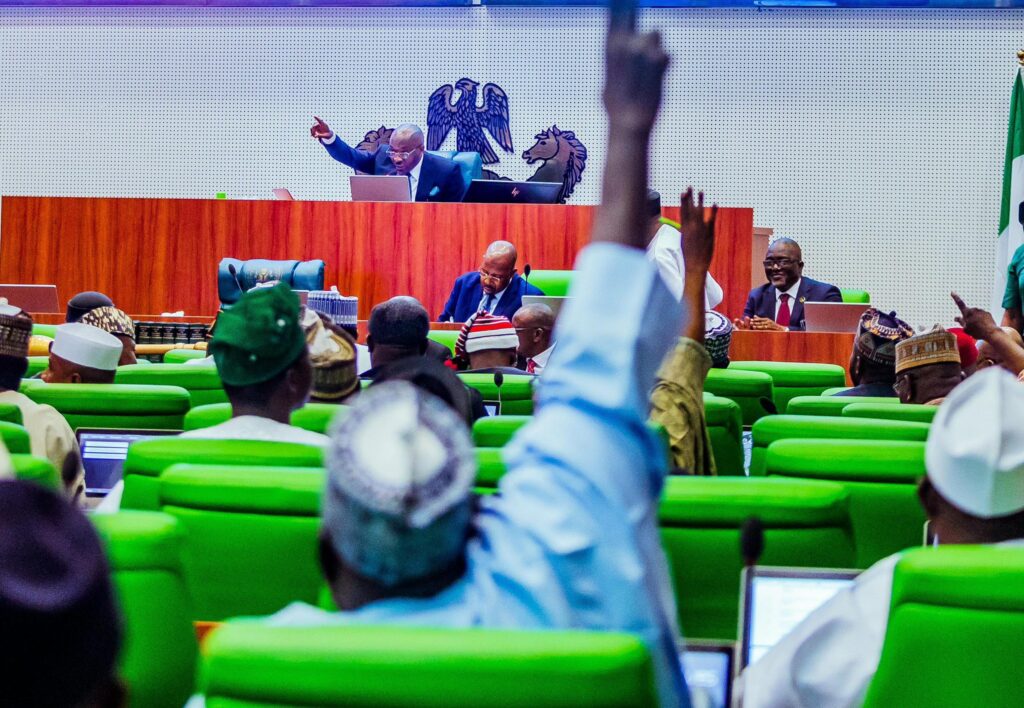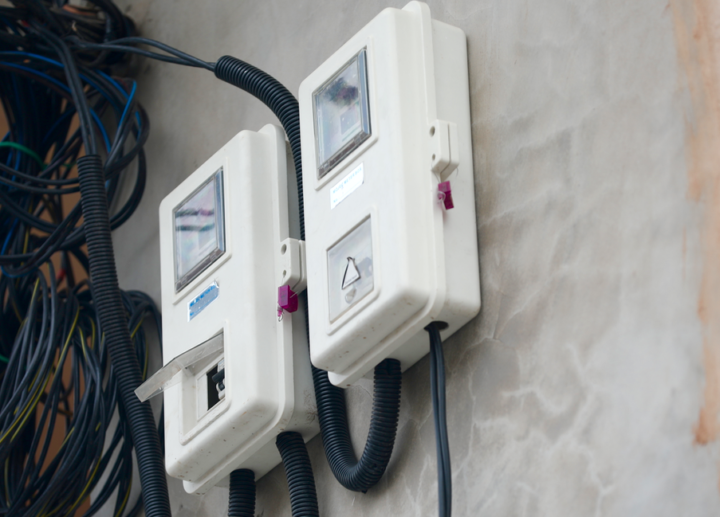Tajudeen Abass, speaker of the house of representatives
Imagine a factory producing different products daily but just a few of them make it to the market. Such is the situation at the national assembly — an institution that passes resolutions at a startling rate, yet only a small number is implemented.
Almost every plenary day, the senate and house of representatives roll out resolutions, transmitting them to the federal government for implementation. In many cases, these resolutions are aimed at steering the nation away from the precipice of its many challenges — from insecurity to economic issues, infrastructure — and many more.
To outsiders, these resolutions passed through motions are implemented by the government. But reality tells a different story.
Many of these resolutions, which are never implemented, trigger frustration within the ranks of the red and green chambers.
Advertisement
SECURITY RESOLUTIONS

Security debates are usually a major feature at the sitting of the house of representatives. Lawmakers frequently move motions on insecurity in their constituencies, typically in the wake of an attack. The resolutions usually urge the federal government to deploy more security operatives to the affected areas to forestall further attacks.
It is common for a lawmaker to reintroduce a motion on insecurity weeks after a previous one, showing that the initial motion was never implemented.
Advertisement
Lawmakers have repeatedly expressed dismay at the government’s failure to implement their resolutions. Some legislators have even questioned the value of such security debates in the house, arguing that they are little more than symbolic gestures.
In October 2023, Solomon Bob, the lawmaker representing Abua/Odual and Ahoada east federal constituency of Rivers, implored his colleagues to stop discussing insecurity motions, describing them as “boring”, noting that they often lack tangible results.
Bob said for over half a decade he had been a member of the parliament, the legislature’s intervention to tackle the complexities of insecurity through motions to the government has yielded no positive outcomes, leaving the issue largely unresolved.
According to Bob, until there are significant results from the resolutions passed by the house, the parliament “has to be spared the ordeal of going through these boring motions (on insecurity) every day and face more substantive matters”.
Advertisement
“We do nothing except to listen to this wailing and mourning about the inability of our people to go to the farms and do their business. I haven’t seen any parliament like this in the world where every day we discuss farmers-herders issues. The issues of insecurity are overflogged. There is no attention paid to it. My view is that until we see action on the parts of the government or agencies, there is no point in taking new ones,” he said.
But Benjamin Kalu, the deputy speaker, had a different view. He said it is the responsibility of the lawmakers to ensure that the voices of the people are heard, and whether or not their resolutions are implemented, the debate on insecurity must continue.
Despite the plethora of security motions passed on the floors of the red and green chambers in the 10th assembly, the implementation leaves much to be desired.
Kingsley Chinda, minority leader, once said the house has reached “several resolutions in its bid to fight insecurity in the country and mitigate its attendant consequences”, but added that “some of these resolutions are awaiting execution”.
Advertisement
In May, the house raised concerns over the failure of the executive to implement its security resolutions.
Exasperated, the green chamber asked Yahaya Danzaria, clerk of the house, to compile all its security resolutions passed in the 10th assembly and forward them to the office of the national security adviser for implementation.
Advertisement
ELECTRICITY TARIFF

On April 3, the Nigerian Electricity Regulatory Commission (NERC) approved an increase in electricity tariff for customers under the Band A classification.
Advertisement
The commission explained that customers under the category, who receive 20 hours of electricity supply daily, would now pay N225 per kilowatt (kW) — up from N66. The tariff was later reduced to N206.80/kW.
Days later, the house asked NERC to suspend the implementation of the new tariff.
Advertisement
Again, in July, the lower legislative chamber directed the electricity regulator to revert to the old tariff for Band A.
The resolution was passed after the lawmakers adopted the recommendations of the committee on power.
The resolution remains unimplemented to this day.
DRUG TESTS IN SECONDARY SCHOOLS
In February, the house asked the federal government to introduce mandatory drug tests in all secondary schools in the country.
The resolution was passed sequel to the adoption of a motion by Oshun Olanrewaju, a lawmaker representing Lagos mainland federal constituency.
While debating the motion, Olanrewaju said substance abuse among young people is “fast becoming a global public health concern” and gradually leading to health complications, including disorders, drug dependence and death.
He recommended a random student drug testing (RSDT) to detect the use of illegal substances, saying it would deter drug use and identify students who need help.
The legislator said a mandatory routine and random drug testing for students “is for preventive, not punitive purposes” and early intervention is crucial to achieving success in tackling the menace of substance abuse.
Checks by TheCable across secondary schools nationwide revealed that the motion has yet to be implemented.
BAN ON QUEEN PRIMER TEXTBOOK
In October 2023, the parliament asked the federal, state and local governments to ban Queen Primer, a textbook used in primary schools.
Sulaiman Gumi, a lawmaker from Zamfara state, who moved the motion, argued that the textbook “subtly introduces the terms — ‘gay’, ‘eros’ — that communicate sexual perversion and immoral behaviours”.
He claimed that the textbook exposes children to terms inappropriate for their age, describing it as “unlawful, unethical, highly immoral and antithetical to child upbringing”.
Following the adoption of the lawmaker’s prayers, the house asked the federal government to place a “total ban on the local production, importation and use of any educational material” that contains words that teach or promote “lesbianism, gay, bisexual and transgender (LGBT)” in schools across the country.
Findings by TheCable revealed that no directive has been issued by the federal government towards banning the textbook.
BAN ON IMPORTATION OF ADIRE, KAMPALA

In March, the green chamber implored the federal government to ban the importation of adire and kampala fabrics into the country.
Adire is a traditional Yoruba resist-dyeing fabric, typically cotton, using wax or starch to create intricate designs and patterns, while kampala fabric is a type of wax-resist printed textile that is similar to the former.
Afolabi Afuape, the lawmaker representing Abeokuta south, who moved the motion at plenary, said the influx of foreign imitations of adire and kampala has negatively impacted the local industry, leading to a decline in the livelihood of local producers and job losses.
The parliament adopted the motion and asked the government to criminalise the importation of the fabrics and extend the ban to other fabric imitations shipped into the country.
That resolution has yet to be implemented.
SUSPENSION OF SAMOA AGREEMENT
In March, the house called on the federal government to suspend the implementation of the Samoa Agreement.
The green chamber passed the resolution after it adopted a motion of urgent public importance sponsored by Sani Madaki, the minority whip, and 87 other lawmakers.
The Samoa Agreement had sparked controversy following reports that some lesbian, gay, bisexual, and transgender (LGBT) provisions found their way into the pact.
According to the European Council, the Samoa Agreement is the overarching framework for European Union (EU) relations with African, Caribbean, and Pacific countries.
The agreement serves as a new legal framework for EU relations with 79 countries, including African, Caribbean, and Pacific countries, covering six priority areas which are democracy and human rights; sustainable economic growth and development; climate change; human and social development; peace and security; and migration and mobility.
Madaki and his co-sponsors said the agreement violates the nation’s law on LGTBQ and same-sex marriage, demanding that the house should reject the Samoa Agreement in its “entirety”.
Though the claims have been established to be false.
‘RESOLUTIONS MUST NOT BE FRIVOLOUS’
In an interview with TheCable, Nkem Abonta, a former member of the house, said the parliament should hold itself accountable for the ineffectiveness of its resolutions.
“It is very unfortunate that some of the resolutions passed are not acted on. But again, the manner in which these resolutions are passed is not implementable,” he said.
As a way forward, the former lawmaker said the house should meticulously evaluate and properly debate resolutions before passing them.
“The house is the representatives of the people. They are like the bridge through which the people feel the government and the government feel them. The house should give the resolution force of law not just persuasive. Resolutions must not be frivolous. Don’t turn out unimportant resolutions,” he said.
“I once said sometime, that in a particular year, the American congress passed 11 resolutions throughout that period. While in the house (Nigeria) we could even pass 11 resolutions in a day.”
Add a comment










